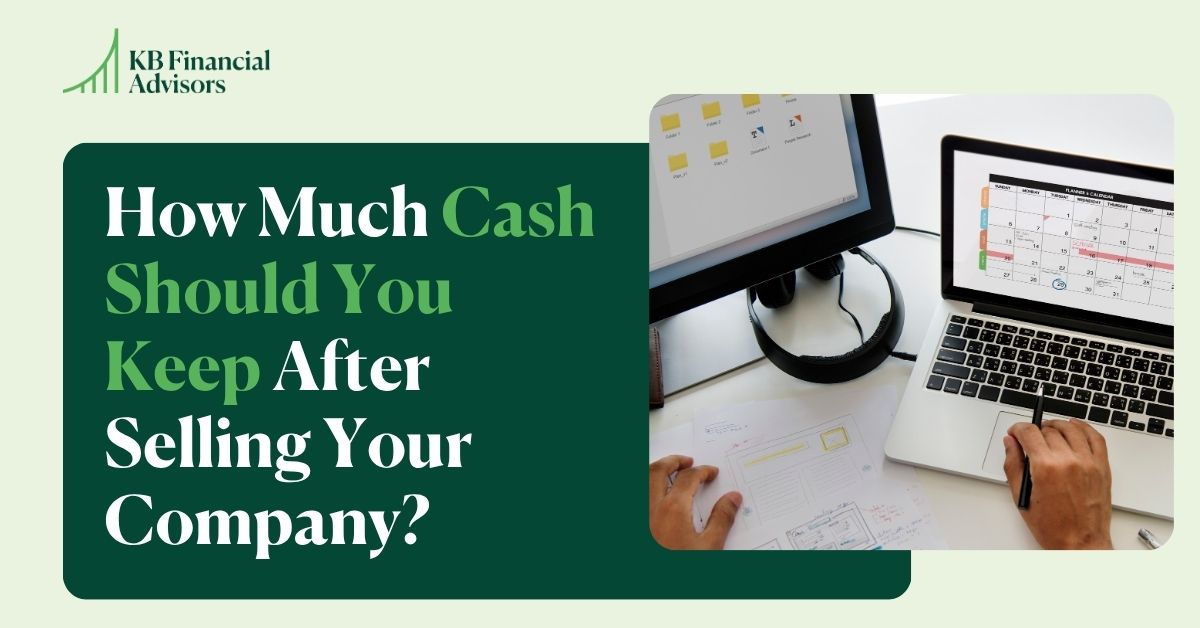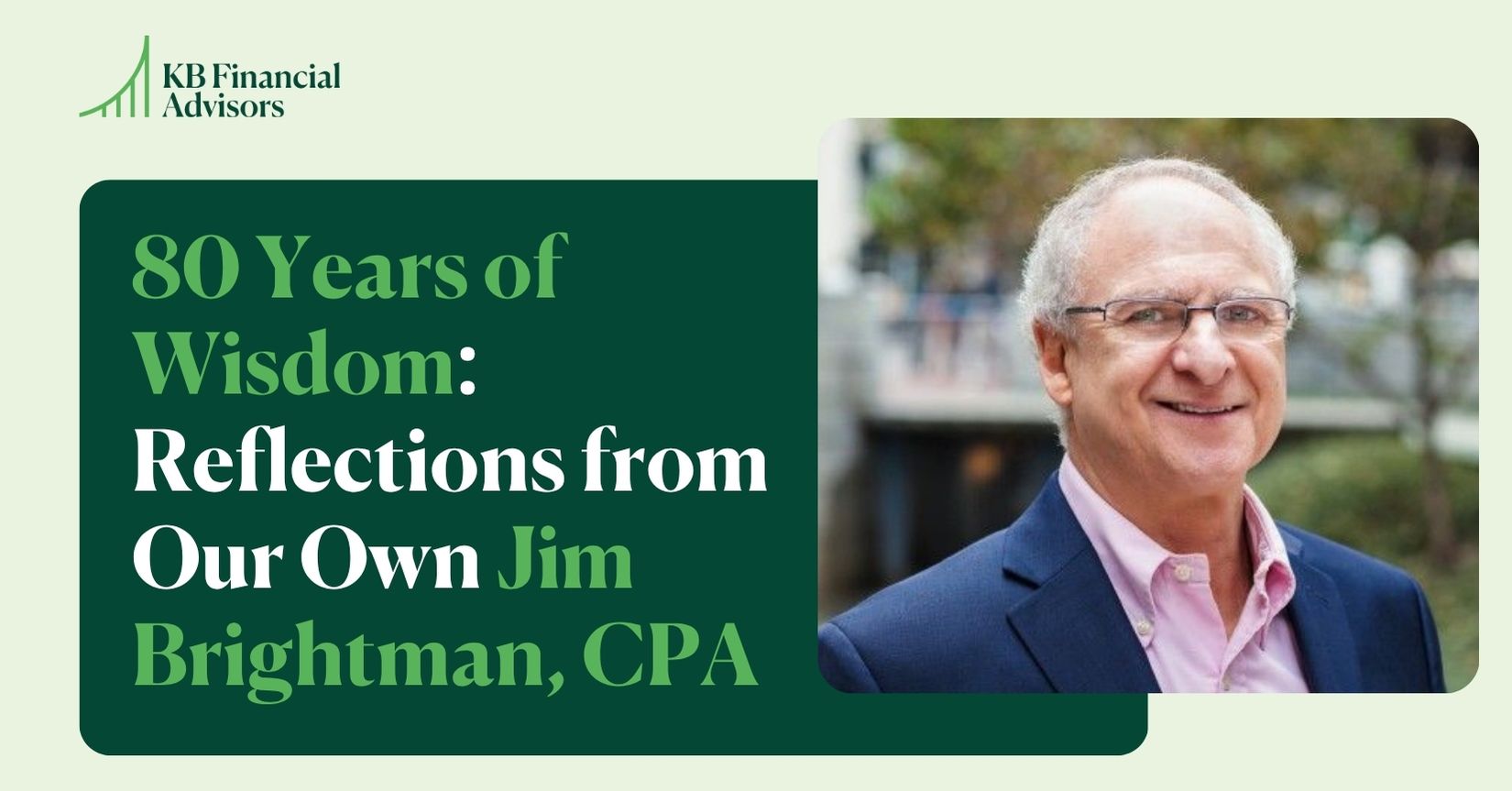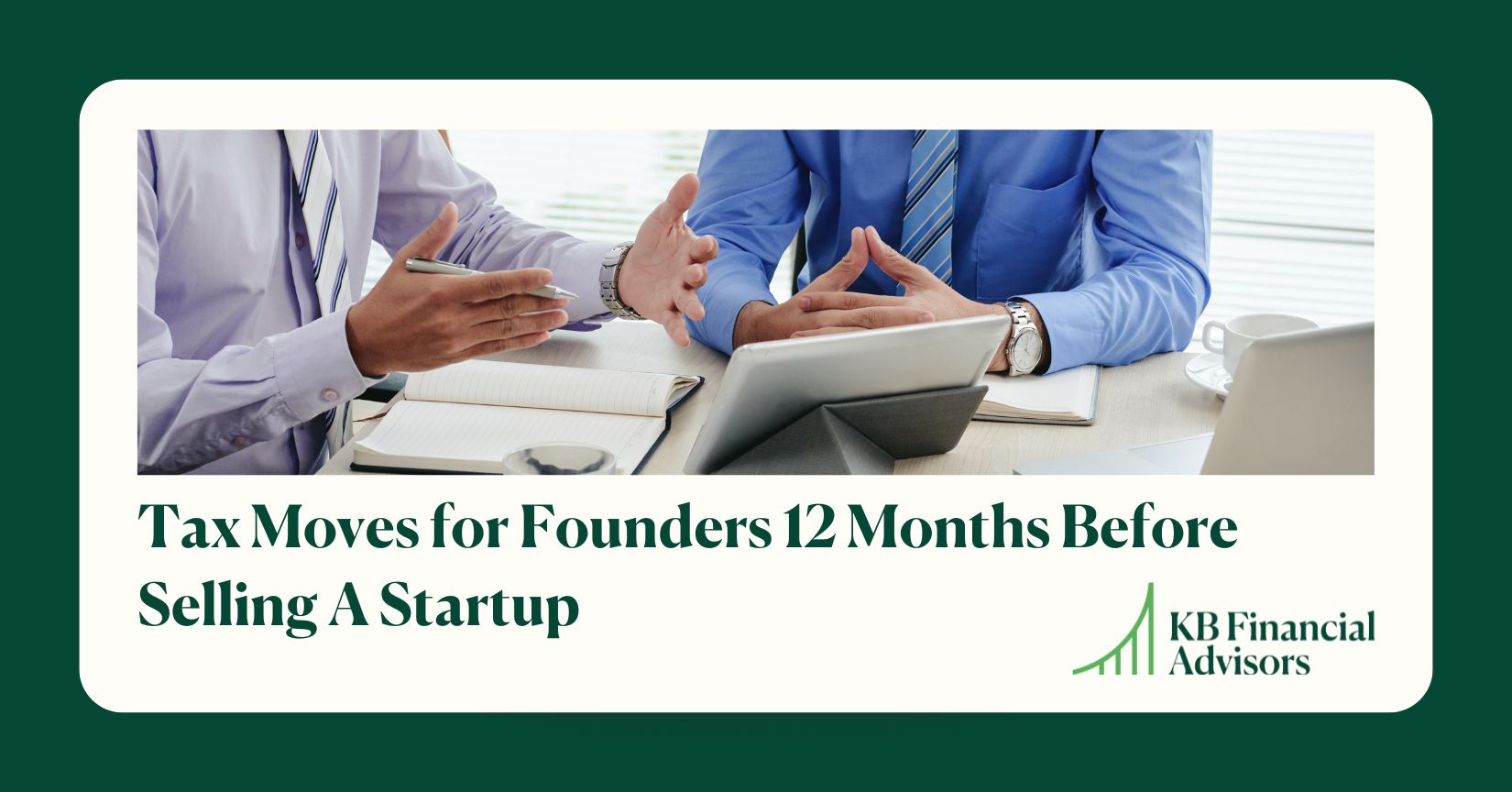You’ve done it!
Your company has sold, and for the first time in years, you’re looking at a bank balance that reflects all the late nights and hard work. It’s exciting and a little surreal. But after the celebration fades, most founders face the same question: how much cash after selling your company should you keep?
There’s no single right answer when it comes to Selling Your Company. The ideal amount depends on your next step, whether you plan to start another business, take time off, buy a home, or simply slow down and spend more time with your family. It also depends on your stage of life. Founders with young kids might prioritize stability, while others may be thinking about long-term giving or estate planning.
What matters is having a plan that supports your next chapter and keeps your options open. Here’s how to think through it.
Check out our related blog: Tax Moves for Founders 12 Months Before Selling A Startup to learn how to optimize your tax strategy before an exit.
Cover Your Living Expenses
This is the most important one. It’s the money that keeps your life running comfortably. It covers your mortgage or rent, groceries, travel, insurance, and the small joys of everyday living.
As a general guide, it’s wise to keep two to three years’ worth of living expenses in cash when Selling Your Company. That may sound like a lot, but this is what gives you real freedom after an exit. It means you can take a year off, start a new venture slowly, or explore different paths without worrying about how to cover the bills.
Having that cushion also protects you from having to sell investments if the markets happen to be down. It’s what lets you breathe and make thoughtful decisions, instead of reactive ones.

Budget For Your Near-Term Goals
Once your everyday expenses are covered, it’s time to think about what’s coming up in the next couple of years. Are you planning to buy a home, pay off loans, support your kids through college, or make a charitable gift?
Money you’ll need in the short run when Selling Your Company should stay easily accessible. Keeping these funds in cash, or something equally low-risk and liquid, gives you flexibility to act when you’re ready, without worrying about timing the market or waiting for an investment to rebound.
Create A Stability And Opportunity Buffer
Even after setting aside funds for living and near-term plans, it’s smart to keep a little extra cash for life’s surprises and opportunities.
Part of this is your stability buffer; it’s money that’s there if the market dips or your next project takes longer to get off the ground. The rest can serve as opportunity capital. Maybe a close friend is raising funds for a startup you believe in, or you want to make an early investment in a new venture of your own. Having a small, ready-to-go reserve lets you move quickly when something exciting crosses your path.
It’s a delicate balance: enough liquidity to feel secure and flexible but not so much that your wealth sits idle.
Where To Keep Your Cash
Once you’ve decided how much cash to hold, the next step is figuring out where to keep it so it’s safe, accessible, and earning at least a little in the background.
For day-to-day use after Selling Your Company, keep a month or two of spending in your checking account. It’s practical and keeps things simple. The rest can sit in high-yield savings accounts or short-term government-backed investments that pay interest, while still letting you access funds when needed.
You don’t have to overcomplicate it. This cash doesn’t need to generate big returns; it needs to be available and secure.
How To Think About Investing
Once your living and near-term goals are covered, you’ll eventually face the next big decision: what to do with the rest of your proceeds.
Investing a large lump sum after a liquidity event isn’t the same as setting up automatic transfers into ETFs or a retirement account. This is real money you’ve built over the years. How you deploy it now will shape your financial life for decades, so it’s normal to feel hesitant.
That’s where a financial advisor makes a real difference.
Together, you’ll decide:
- How quickly to re-enter the market: Some founders prefer to phase in gradually to manage volatility and emotions. Others invest sooner once they’re confident in their long-term plan.
- What to invest in and why: When you’re working with millions instead of thousands, diversification looks different. It’s not just about stock funds, but about balancing public markets, private investments, cash flow needs, and risk tolerance.
- How to align investments with life goals: Your advisor will help map the portfolio to your priorities, from starting another business to creating generational wealth, so your investments have purpose.
Even though your proceeds from Selling Your Company are already taxed, there are still smart ways to plan around taxes going forward. An advisor can coordinate strategies like tax-loss harvesting, charitable giving, and setting up trusts or donor-advised funds to make future growth more efficient. These moves won’t change the taxes on the sale itself, but they can make a big difference in what you keep over time.
Let Us Make Your Money Work For You
Selling your company is one of those rare moments that changes everything. It’s an incredible position to be in, but it also comes with big decisions.
That’s why having a trusted advisor matters. A financial planner who understands equity, liquidity events, and post-exit life can help you:
- Create a structure around your newfound wealth
- Invest at the right pace and in the right places
- Build tax-efficient strategies for the years ahead
- Turn your proceeds into lasting financial independence
At KB Financial Advisors, we work with founders and tech professionals across the U.S. who’ve reached this same milestone. We help you make informed decisions about how much cash to keep on hand and how to invest for the future you want.
If you’ve recently sold your company and want to make sure your wealth supports your next chapter, let’s talk.
Book a call with our team today.
Until next time!




